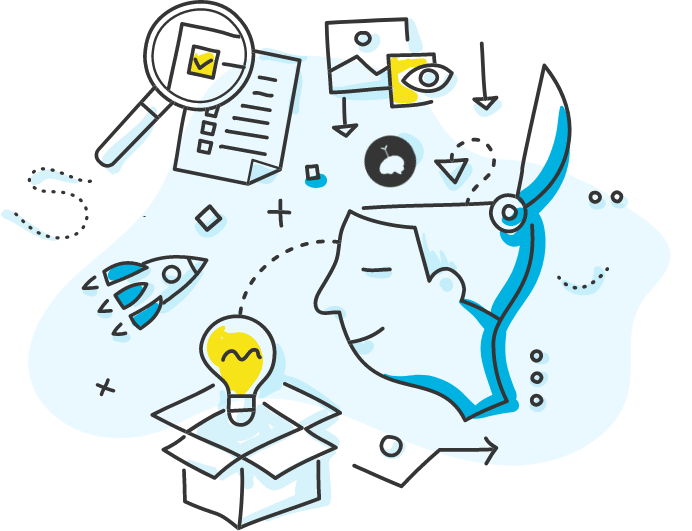Estimated Reading Time: 2 minutes, 44s.

I’m currently living in reclusion for 10 days for a productivity experiment, and having no exposure to the sun has certainly affected my productivity.1
While my case may be extreme (who lives in complete reclusion for 10 days?), lighting has the potential to greatly affect your productivity, too. That’s why some businesses even go so far as to “get special lighting experts to create an atmosphere in a restaurant or on the stage in the theater” – because lighting can affect your behaviour behaviour so much.2
I’ve seen first hand the effect lighting can have on my sleep quality, motivation, energy levels, happiness, and ultimately my productivity. Below are four (scientific) ways artificial light may be keeping you from being productive.
1. Artificial light disrupts your sleep
Simply put, the sun tells your body when it’s time to go to bed. Your body has a daily cycle called its circadian rhythm (you may have heard of it), and the sun controls that rhythm. When the sun dims outside, it tells your body to produce melatonin, the chemical that tells your body and mind that it’s time to sleep.
“When the sun sets, your body starts producing this hormone and you gradually feel sleepier and your body temperature lowers as it accumulates. Then as morning approaches and daylight comes, melatonin levels fall and you wake.” When you are constantly surrounded by artificial light, there are no signs to tell your body to produce melatonin, and without the sleep inducing hormone, it’s much harder to get to sleep.3
2. Artificial light stresses you out, man
Cortisol, the chemical in your body that deals with stress, is produced in much lower quantities after you spend time in artificial light.4 The graph below shows how much cortisol you have throughout the day when you have ample exposure to sunlight.

Not being able to handle stressful situations can affect your health, focus, mental clarity, and naturally, your productivity.
3. Artificial light provides you with less energy
A recent study divided participants into two groups, and throughout the course of a work day, the first group was exposed mostly to artificial light, while the second was exposed to natural light. The performance difference between the two groups was noticeable, and according to the study, “even short-term [artificial] lighting conditions during the afternoon had an impact on cognitive task performance in the evening”.5 Subjects who were exposed to artificial light fatigued quicker, made more mistakes, and after work, had a lot less energy.
4. Artificial light affects your attention
 The same survey also found that the same subjects exhibited less “attentional control” (they weren’t able to manage their attention as effectively). “Such a relationship could be crucial for workers requiring high attention levels and executive functioning, such as bus drivers, industrial workers in sensitive areas, or air-traffic control.”6 I would say that any person, in any job, would benefit from greater control over their attention.
The same survey also found that the same subjects exhibited less “attentional control” (they weren’t able to manage their attention as effectively). “Such a relationship could be crucial for workers requiring high attention levels and executive functioning, such as bus drivers, industrial workers in sensitive areas, or air-traffic control.”6 I would say that any person, in any job, would benefit from greater control over their attention.
Here comes the sun, do do do dooooo
Too much exposure to artificial light is not a good thing. Luckily, the solution is very simple – get out more! Enjoy the day! Go frolic in a field somewhere!
Oh, and make sure you have f.lux installed! It’s an app that gently changes the colors of your computer screen after the sun sets, so your body produces more melatonin to help you sleep if you work at night.
Lightbulb photo credit: Laszlo Ilyes. Sunflower photo credit: Kevin Lallier.
That said, I am experimenting with methods to boost it back up, like working out, drinking a ton of water, taking Vitamin D, and eating impeccably. More on that in this video! ↩
Source: http://www.sheknows.com/home-and-gardening/articles/830727/how-lighting-can-affect-your-mood ↩
Source: http://www.lumec.com/newsletter/focal-point/10-2010/effects-artificial-light-humain.html ↩
Source: http://infoscience.epfl.ch/record/174780/files/Münch_BNE_2012.pdf ↩
Source: http://infoscience.epfl.ch/record/174780/files/Münch_BNE_2012.pdf ↩




